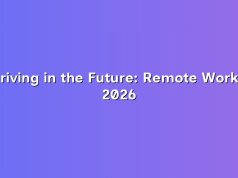Business owners and managers should emphasize hard and soft skills equally and become an integral part of their management process. Furthermore, employees should be encouraged to practice and develop soft skills and be aware of their importance in their career development.
Adaptability
It’s essential to adapt to situations, environments, programs, etc., and learn new skills swiftly. We’re continuously trying to develop what has previously been done, so change happens quickly, which implies you will certainly require keeping up.
Don’t be hung up on conventional approaches; it’s essential to adjust to the rapid developments in technology.
You should be ready and willing to adapt your skills. Willingness to develop and learn new skills is necessary, particularly for lower-skilled workers since it is predicted that by 2030, 8-9% of the world’s labor force will be in new professions as well as these occupations will undoubtedly be in specialized areas, such as computing, engineering, design, etc. Therefore, you should make sure that you’re continually learning.
Negotiation
The negotiations need to be effected by human beings because it consists of solid interpersonal and communication skills. You have to get to a decision that makes all stakeholders satisfied, even if there is a compromise, even though you don’t achieve what you set out to do.
Collaboration
The business world is interconnected, so working together has become very important. This will become a lot more significant due to the intricacies and interconnectedness of future operations.
Service mindset
It might be more straightforward to hand over lots of our processes to machines, but clients will still want to deal with real people. Handling people will still help build connections with customers because individuals wish to have purposeful interactions. It will undoubtedly come to be an advantage to your company if you’re supplying personalized human communication.
Problem-solving
Businesses need to develop products, systems frequently and also solutions to stay competitive. With technology development, they’ll be new issues, so you’ll need solid problem-solving abilities to find answers.
You may think this is something machines will undoubtedly be much better at since machines are designed to resolve issues that humans cannot; however, humans can also fix problems that machines can’t – humans usually work backward to find solutions.
The future of work means differently to each one of us: some see it as more technology and less human, some expect a more humanized space and some others imagine it to be a no-workplace world. In our journey to unwrap FutureofWork, Work2.org invites leaders from various industries to help our global community to understand what the posterity holds for workers, leaders and organizations. While our team is busy at bringing this fresh ideas directly to you, we would appreciate our community help in making it possible. If you like what you’ve read, we would appreciate if you could spread the word within your circles and let us know if anything you want us to bring into this #FutureOfWork conversation.




























